Remarks by U.S. Special Presidential Envoy for Climate, John Kerry at
the opening of the Climate Adaptation Summit 2021.
It’s a privilege to be able to be with you. And let me start by
thanking Prime Minister Rutte and the government of the Netherlands
for hosting this important and timely meeting.
I’m really delighted to be here. I also want to thank, if I may,
Secretary General Guterres for his tireless leadership on climate
change. And of course my friend Ban Ki-Moon, who was central as we
negotiated the Paris agreement and brought it into force. And he’s
been a partner not just on climate but on many other things and
challenges.
Three years ago, scientists gave us a pretty stark warning. They said
we have 12 years within which to avoid the worst consequences of
climate change. Now we have nine years left. And I regret that my
country has been absent for three of those years.
In the United States, we spent 265 billion dollars in one year for
three storms, just cleaning up after those storms. Last year, one
storm, 55 billion dollars.
We’ve reached the point where it is an absolute fact that it’s cheaper
to invest in preventing damage, or minimizing it at least, than
cleaning up. Now, without question, I think, everybody understands
this, the best adaptation is to treat the crisis as the emergency that
it is and do more to hold the earth’s temperature increase to the
Paris-stated 1.5 degrees. I think scientists are more and more landing
on the 1.5 as a critical figure.
A 3.7 to 4.5 increase centigrade, which is
exactly the path that we are on now, invites for the most vulnerable
and poorest people on earth fundamentally unlivable conditions. So our
urgent reduction of emissions is compelled by public conscience and by
common sense. President Biden has made fighting climate change a top
priority of his administration. We have a president now, thank God,
who leads, tells the truth, and is seized by this issue.
And President Biden knows that we have to mobilize in unprecedented
ways to meet a challenge that is fast accelerating. And he knows we
have limited time to get it under control. For that reason, the United
States immediately rejoined the Paris agreement. And we intend to do
everything we possibly can to ensure that
COP26 results in ambitious climate action,
in which all major-emitter countries raise ambitions significantly,
and in which we help protect those who are the most vulnerable.
We have already launched our work to prepare a new U.S. nationally
determined
contribution
that meets the urgency of the challenge. And we aim to announce our
NDC as soon as practicable.
The administration also intends to make significant investments in
climate action, both domestically and as part of our efforts to build
back better from
COVID. And internationally, we intend to
make good on our climate finance pledge.
In the long term driving towards net zero emissions no later than
2050, and keeping a 1.5 degree limit within reach remain the best
policies for climate resilience and adaptation. There is simply no
adapting to a three or four degree world except for the very richest
and most privileged. At the same time, we have to also build
resilience to protect communities from the impacts of climate change
that already built in to the emissions that are in the atmosphere.
Now some of these impacts are inevitable, because of the warming
that’s already taken place. But if we don’t act boldly and immediately
by building resilience to climate change, we are likely going to see
dramatic reversals in economic development for everybody. Poor and
climate-vulnerable communities everywhere will obviously pay the
highest price.
So the United States will work on three fronts to promote ambition and
resilience and adaptation: leverage U.S. innovation and climate data
and information to promote a better understanding and management of
climate risk, especially in developed countries; we will significantly
increase the flow of finance, including concessional
finance,
to adaptation and resilience initiatives; we will work with bilateral
and multilateral institutions to improve quality of resilience
programming; and we will work with the private sector, in the United
States and elsewhere in developing countries, to promote greater
collaboration between businesses and the communities on which they
depend.
And it is our firm conviction throughout all of our administration
every agency is now part of our climate team. And only together are we
going to be able to build the resilience to climate change that is
critical to save lives and meet our moral obligation for future
generations, and to those currently living in very difficult
circumstances. So we’re proud to be back. We come back, I want you to
know, with humility, for the absence of the last four years, and we’ll
do everything in our power to make up for it.
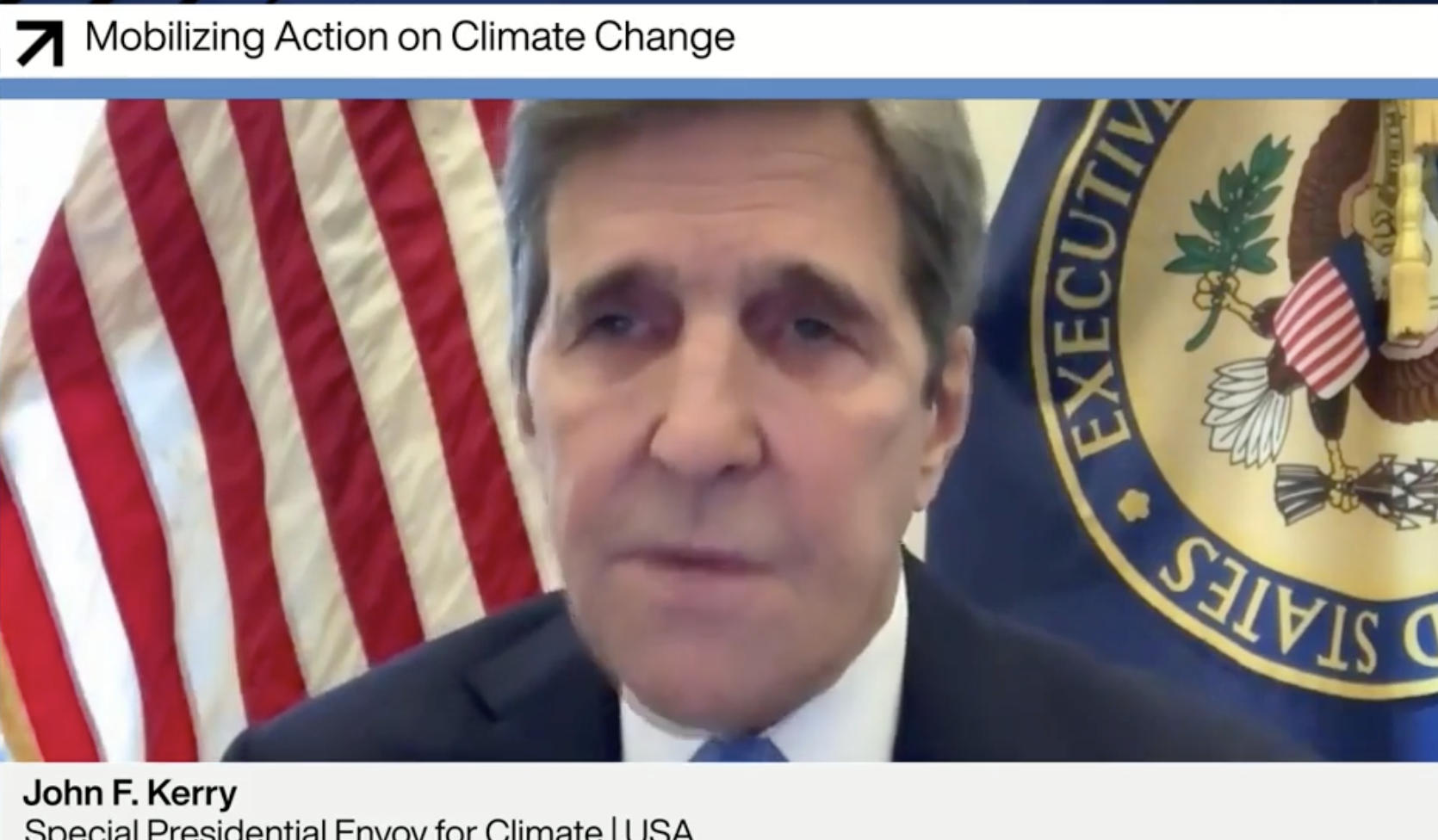 Speaking at the
Davos World Economic Forum, US Climate Envoy John Kerry offered a strong
critique of natural gas: “Gas is primarily methane, and we have a huge
methane problem, folks.”
Speaking at the
Davos World Economic Forum, US Climate Envoy John Kerry offered a strong
critique of natural gas: “Gas is primarily methane, and we have a huge
methane problem, folks.”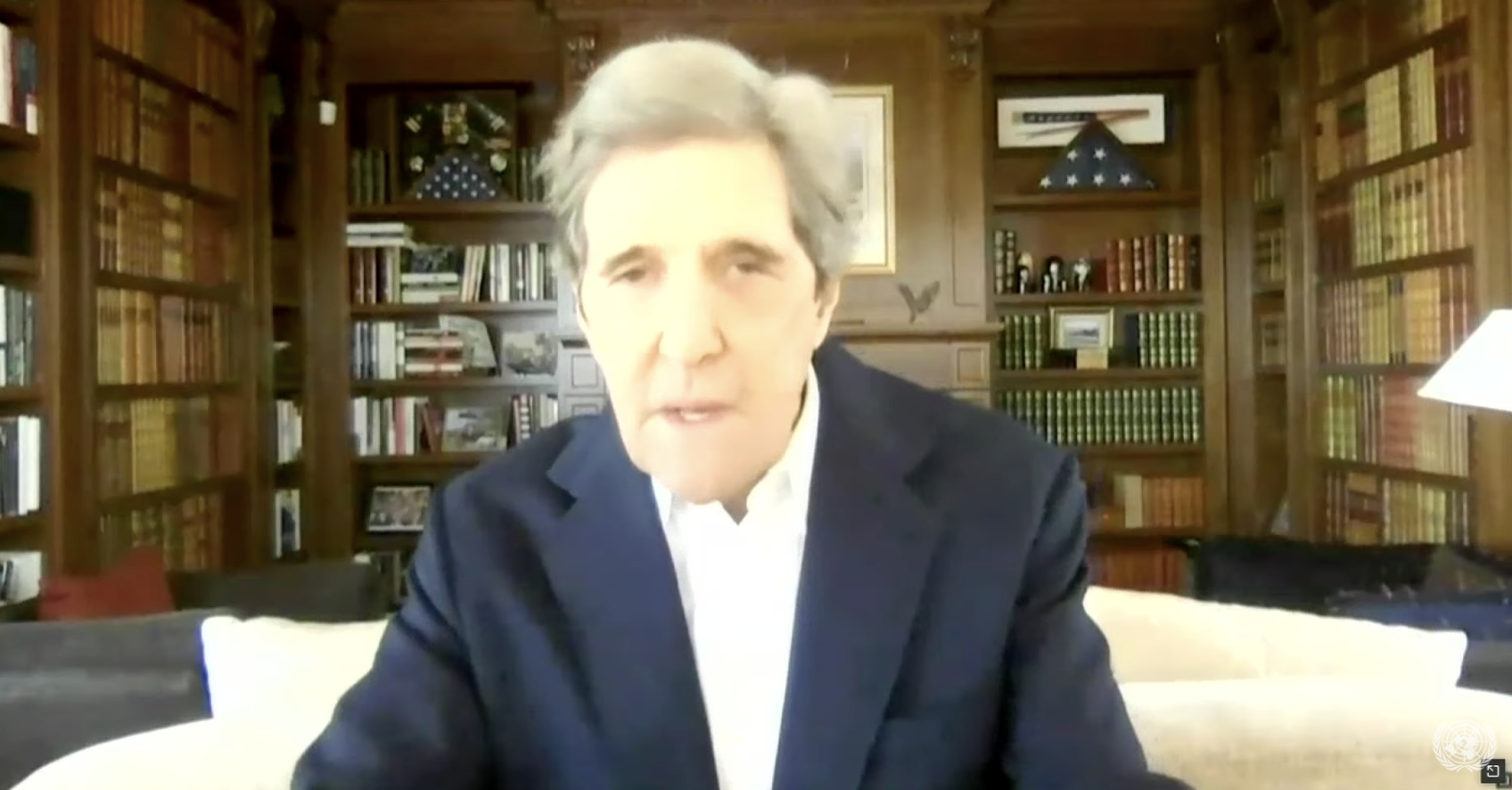
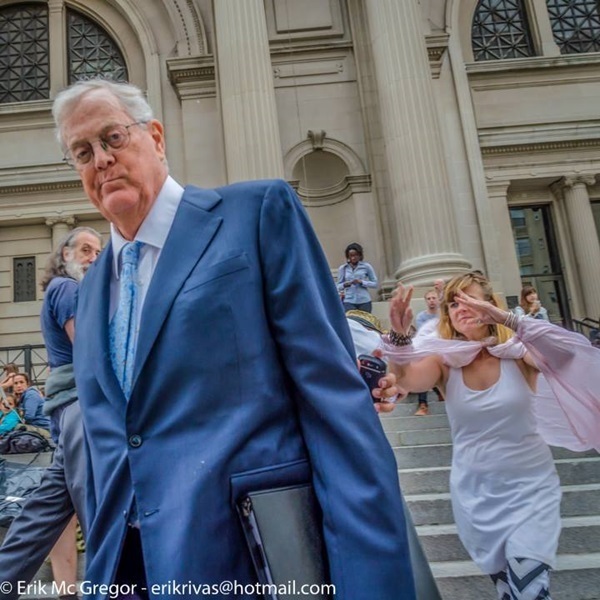
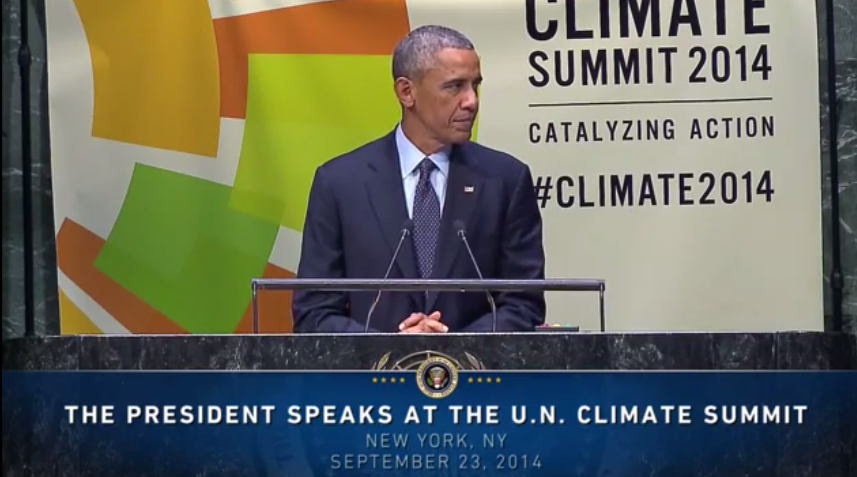 Addressing the
Addressing the 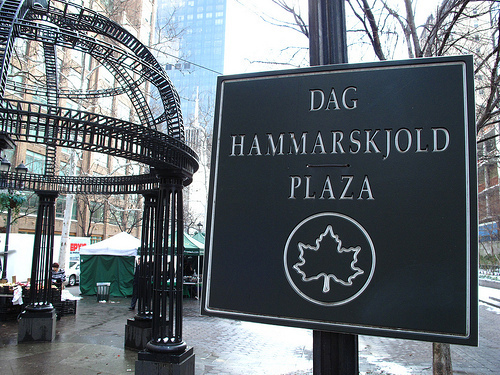 Occupy Wall Street activists are planning to “occupy” the
Occupy Wall Street activists are planning to “occupy” the